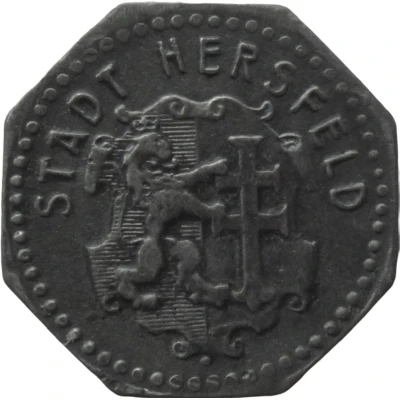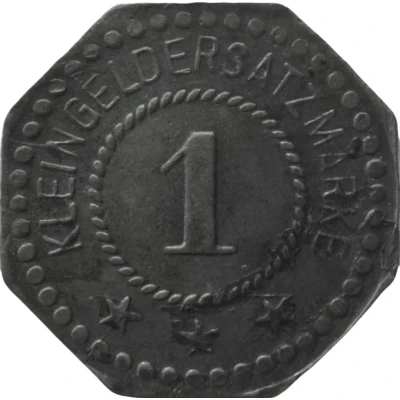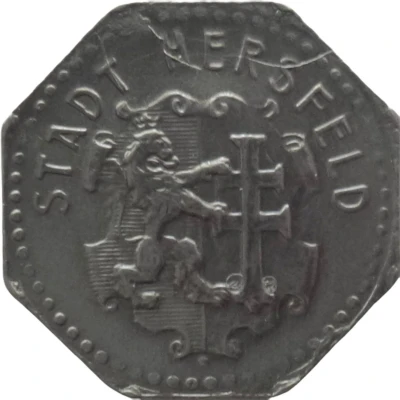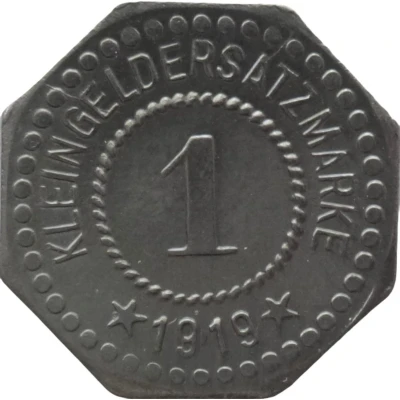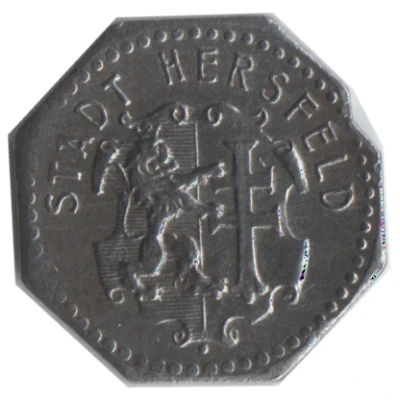
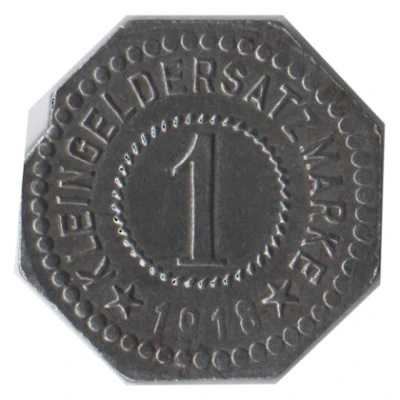

© KaterMurr (CC BY-NC-SA)
1 Pfennig - Hersfeld
1918 year| Iron | 1.5 g | 16.2 mm |
| Issuer | City of Hersfeld (Prussian province of Hesse-Nassau) |
|---|---|
| Type | Standard circulation coin |
| Year | 1918 |
| Value | 1 Pfennig (0.01) |
| Currency | Mark (1914-1924) |
| Composition | Iron |
| Weight | 1.5 g |
| Diameter | 16.2 mm |
| Thickness | 1.0 mm |
| Shape | Octagonal (8-sided) |
| Technique | Milled |
| Orientation | Medal alignment ↑↑ |
| Demonetized | Yes |
| Updated | 2024-10-04 |
| Numista | N#222942 |
|---|---|
| Rarity index | 86% |
Reverse
Pearl rim, legend surrounding rope circle with denomination centered
Script: Latin
Lettering:
KLEINGELDERSATZMARKE
1
★ 1918 ★
Edge
Plain
Interesting fact
The 1 Pfennig - Hersfeld 1918 coin was issued during a time of economic turmoil in Germany, known as the "Inflationary Period" (1914-1923). During this time, the value of the German mark (the national currency) plummeted, and prices for everyday goods skyrocketed. As a result, many Germans turned to alternative forms of currency, such as local emergency currencies like the 1 Pfennig - Hersfeld 1918 coin, which was issued by the City of Hersfeld in the Prussian province of Hesse-Nassau. Despite its small denomination, the coin was made of iron and weighed 1.5 grams, making it a tangible and durable alternative to the rapidly depreciating paper currency.
